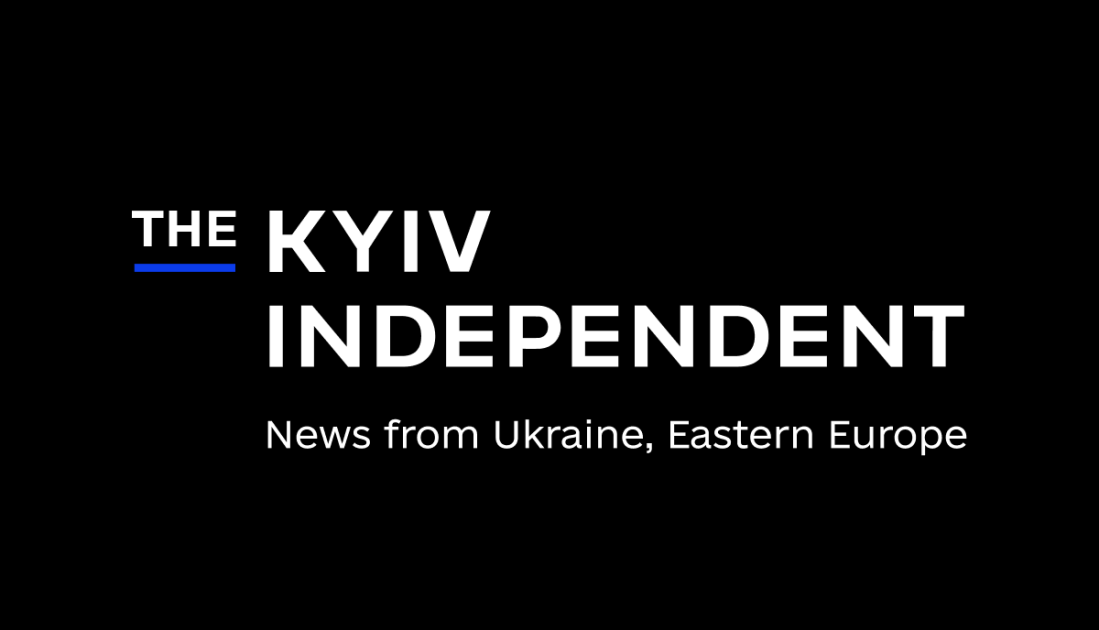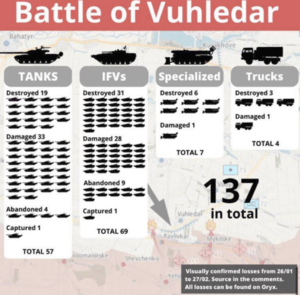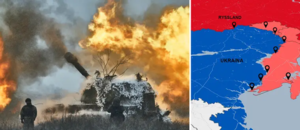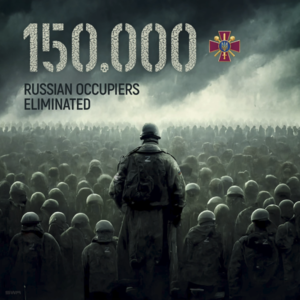Politikk, religion og samfunn Russland - En tikkende bombe eller bare fjas?
Diskusjonstråd Se tråd i gallerivisning
-
Det er ikke så lenge siden det var tester av Ram-Jet artilleriet (testet på Andøya i fjor sommer), men jeg har ikke sett noe mer detaljer info fra det. Bra om de klarer å få 155 mm artilleri i nærheten av 150 km rekkevidde.

Boeing, Nammo test Ramjet 155 artillery weapon
Boeing and Nammo have jointly test-fired a Ramjet 155 weapon as the U.S. Army seeks to modernize its long-range precision fire capability. www.defensenews.com
De slovakiske MIG-29 er fortsatt i Slovakia
www.defensenews.com
De slovakiske MIG-29 er fortsatt i Slovakia

Slovakia considering giving Ukraine 10 of its 11 Soviet-era MiG-29 jets
Slovakia is considering giving Ukraine 10 of its 11 Soviet-made MiG-29 planes, Slovakian Defense Minister Jaroslav Nad told the Associated Press in an interview published on March 1.kyivindependent.com
Putin-vennlig oligark prøver å skape kaos i Moldova. Ikke utenkelig at han vil lykkes. Her må den vestlige alliansen inn med hjelpepakke til landet før lommebøkene til innbyggerne er tomme.

Putin-venn skaper frykt
I Moldova har flere tusen russiskvennlige demonstranter tatt til hovedstadens gater. I front står den sanksjonerte russiskvennlige oligarken Ilan Shor. www.dagbladet.no
Krigens veier er uransakelige og kan ta nye uventede veier
www.dagbladet.no
Krigens veier er uransakelige og kan ta nye uventede veier

EU-landenes forsvarslagre tømmes, EU trår til for felles anskaffelsesinnsats | anbud365
Våpenhjelpen til Ukraina har ført til at EUs medlemsstater nå har et akutt behov for å gjenoppbygge sin nasjonale forsvarkapasitet. Derfor trår EU til med penger, med et finansielt, kortsiktig... www.anbud365.no
Warplane shotdown and crashed in Yenakieve. Pilots have reportedly ejected.
www.anbud365.no
Warplane shotdown and crashed in Yenakieve. Pilots have reportedly ejected.
Det begynner vel å se litt mørkt ut i Bakhmut, men det er ikke over ennå.
Daily Kos
Daily Kos is a progressive news site that fights for democracy by giving our audience information and resources to win elections and impact government. Our coverage is assiduously factual, ethical, and unapologetically liberal. We amplify what we think is important, with the proper context—not...m.dailykos.com
- Ble medlem
- 13.10.2005
- Innlegg
- 21.457
- Antall liker
- 6.881
Jeg leste et sted at Bakhmut er av lav strategisk betydning, så den viktigste grunnen til at ukrainerne holder kampene i gang er at russerne påføres store tap der i forhold til ukrainernes tap.Som tidligere nevnt i tråden: Jo lengre unna Putins maktbase man kommer fra, desto større er sannsynligheten for å havne i kjøttkverna i Ukraina.
Putin vet det. Finnes ikke bord langt nok til at han tør vise seg i provinsene.
Daily Kos
Daily Kos is a progressive news site that fights for democracy by giving our audience information and resources to win elections and impact government. Our coverage is assiduously factual, ethical, and unapologetically liberal. We amplify what we think is important, with the proper context—not...m.dailykos.com
But the most amusing part of this whole thing is that Vladimir Putin seems to have canceled a trip to southern Russia that was planned for today because of concerns about this “sabotage group.”
You read that right. Joe Biden recently visited Kyiv during an air raid. Zelenskyy is out there every day. But following a small attack on two tiny border villages, Vladimir Putin has canceled a visit to a whole area of Russia. Putin is afraid to travel in his own country.putlers urix mann prøvde å overbevise Inderne om at det var Ukraina som angrep russland. Noe Inderne visste å sette pris på med latter
Som tidligere nevnt i tråden: Jo lengre unna Putins maktbase man kommer fra, desto større er sannsynligheten for å havne i kjøttkverna i Ukraina.
Kjenner at jeg er litt glad jeg ikke ble født i Tuva. Av flere grunner forsåvidt.Interessant at det høge tal frå Komi og Mari, som er minoritetsspråklege område (finsk-ugriske språk). Veit for lite om Russland til å seia meir om kartet.
Jo, desjken, tuva er visst eit turkomansk språk.omkring tysk etterretningstjeneste:

German efficiency? Not in the shady, inept BND spy agency
A joke is doing the rounds among the US officials who deal with Europe. What, they ask, is the fastest way to bring something to President Putin’s attention? Th www.thetimes.co.uk
www.thetimes.co.uk
A joke is doing the rounds among the US officials who deal with Europe. What, they ask, is the fastest way to bring something to President Putin’s attention? The answer: give it to the Germans.
Germany’s foreign intelligence service, the BND, is having a rough time. One of its officers stands accused of leaking secrets to the FSB, a Kremlin spy agency, and its efforts to uncover who carried out the bombing of the Nord Stream 1 and 2 gas pipelines last September are understood to be proving fruitless. Yet the most potentially serious of its problems is also the least discussed in public: the steady erosion of trust in its competence.
The BND is a peculiar organisation. Founded after the Second World War as an unruly private espionage network of former Wehrmacht officers, Gestapo agents and sleazy aristocrats, its initial purpose was primarily to spy on the enemies of Konrad Adenauer, the first West German chancellor.
In the Fifties and Sixties, however, it was given a formal place in the German state and slowly professionalised. It acquired pockets of world-class expertise, including on Egypt and other parts of the Arab world, although it retained a certain anarchic quality.
The archives from its Cold War years, opened up to independent historians in an admirable stab at transparency, are stuffed with deranged stories, such as the gifted ex-SS officer who went rogue in Latin America and plunged without authorisation into a series of gun fights, guerilla campaigns and momentous political intrigues. (Sadly, the exact details of the case were redacted under privacy rules.)
The BND has long been under particularly intense scrutiny because of the industrial-grade abuses of its totalitarian predecessors. Its grubby dealings and operational mistakes tend to surface more readily than those of its peers. Its surveillance activities are also circumscribed to a fairly unusual degree by German law. A couple of years ago, one of its former heads warned that these narrowing constraints put it at risk of a “descent into third-class status” in the intelligence world.
It is easy to judge the BND harshly, and that is precisely what some of its partners are now doing. The intriguing thing about the current suspected case of Russian espionage is not that it happened — several other countries, including Sweden, are wrestling with similar incidents of infiltration — but the window it offers into how the agency operates.
Carsten Linke, a senior officer in the BND’s “technical reconnaissance” department, is accused of using a Russian-German businessman to ferry documents to his FSB handlers in Moscow, possibly with help from a fellow member of the German intelligence service.
If reports in the German press are accurate, the Russians were after precise GPS data on the locations of some of Ukraine’s peskiest western-supplied armaments, such as Himars rocket launchers and the advanced Iris-T air defence systems.
While it is unclear whether they got everything they wanted, Linke is alleged to have smuggled papers out of the office and to have been paid handsomely in return: a six-figure sum in banknotes is said to have been found stuffed into envelopes and stashed away in his locker at the BND’s headquarters.
The agency used to carry out random spot-checks on staff to discourage this sort of thing but the practice was abolished under the previous chancellor, Angela Merkel. In the end Linke was caught only with help from a friendly foreign intelligence agency.
The punchline is that at the time of his arrest Linke had recently been promoted to oversee the security checks on staff and potential agents, even though his fruity hard-right views were allegedly notorious among his colleagues.
Any serious spy novelist would have rejected the incidental details as too clunky and picaresque to be plausible: the locker full of grubby Russian cash; the furtive dinners in Moscow caviar joints; Linke’s supposed YouTube account, adorned with the eagle symbol of the German empire and full of old marching songs from the Wehrmacht and the Prussian army.
Yet they hint at the institutional blind spots and carelessness that are causing more bother than the espionage itself. In private, several officials, MPs and diplomats suggest the suspected Russian penetration is one symptom of a deeper malaise in an organisation that seems to have lost its way over the past 12 months.
Sources claim the BND has repeatedly misjudged the situation in Ukraine since the night of the invasion, when Bruno Kahl, its president, was caught unawares in Kyiv and had to be spirited out of the country with a fiddly evacuation convoy. One senior figure from the coalition rolled their eyes when asked about the agency, replying: “I’m not inclined to trust anything from an intelligence service that allowed its own boss to get stranded in a war zone.”
The BND’s luck has scarcely improved since then. At first, like a number of other intelligence agencies, it predicted a rapid and fatal Ukrainian collapse. Unlike its peers, however, it is believed to have continued to provide Olaf Scholz, the chancellor, with doom-laden analyses long after the Russians were driven back from Kyiv and Kharkiv.
Last summer, as the Ukrainians were preparing for their highly effective counter-offensives on the Kherson and Donbas fronts, the BND suggested they would fold by October at the latest. Now it is said to have concluded that the war is heading towards a kind of Flanders Fields Mark 2, an essentially static attritional slog that will drag on for years and whose outcome will be almost entirely unaffected by any shipments of western tanks or fighter jets.
That may ultimately turn out to be the case. For now, though, these doggedly pessimistic intelligence reports are bolstering Scholz’s natural circumspection — and raising increasingly sceptical eyebrows elsewhere.Sist redigert:Interressant
Jeg har hele tiden lurt på hva det er som gjør at tyskerne tilsynelatende står helt i ro. Nå faller bRRRikkene på plass.. nåja en av de hvertfall
Ser ut til at europeiske styresmakter trenger en opplæring i spionasje.. nei vent, det finner de på Tik-Tok så all good1 000 kilometer krig: Så ser det ut – längs hela fronten
Övergivna städer, befästningar och sönderbombade vattenkraftverk. Vid vissa delar av den 1 000 kilometer långa fronten pågår just nu hårda strider. Men på andra håll grävs det istället skyttegravar. I den här videon får du en överblick av vad som händer just nu – och vad som kan vara nästa steg... www.svt.se
www.svt.se

Du milde, hva foregår i hodene til de som fremdeles hevder at man må gi noe til russland. Det eneste man kan gi disse er en smak av det samme i retur innenfor egne grenser.1 000 kilometer krig: Så ser det ut – längs hela fronten
Övergivna städer, befästningar och sönderbombade vattenkraftverk. Vid vissa delar av den 1 000 kilometer långa fronten pågår just nu hårda strider. Men på andra håll grävs det istället skyttegravar. I den här videon får du en överblick av vad som händer just nu – och vad som kan vara nästa steg... www.svt.se
www.svt.se
Vis vedlegget 898521
Gi Ukrainerne langtrekkende missiler og la de ta ut russerne langt innafor russland grenserSom ukrainerne sier, we don't fight the dragon to become the dragon.Gode nyheter....

Bildet viser en prototyp av Panther KF51. Foto: Rheinmetall Defence
Ukraina trenger 600 til 800 stridsvogner for å vinne"
Intervju | Düsseldorf · Armin Papperger, leder av Düsseldorfs våpenkonsern Rheinmetall, ønsker å bygge en tankfabrikk i Ukraina. Han krever 300 milliarder euro fra politikere for Bundeswehr og berømmer forsvarsminister Pistorius. Han er glad for oppgangen til Dax.

Rheinmetall-Chef Armin Papperger: „Menschenrechte sind höher einzuschätzen als Pazifismus“
Armin Papperger, Chef des Düsseldorfer Rüstungskonzerns Rheinmetall, will in der Ukraine eine Panzerfabrik bauen. Er fordert von der Politik 300 Milliarden Euro für die Bundeswehr und lobt Verteidigungsminister Pistorius. Über den Dax-Aufstieg freut er sich.rp-online.de
Kor e alle pratemakerne som skal bruke andre midler en ren (militær)makt for å stoppe russerne? Her er det plenty med stoff som de kan prate med putler om. Reis inn og prat med ham… ikke det nei Tenkte meg det ja
- Gir ikke mening uten
Vladimir Putin mener historien gir Russland en historisk rett til å være en stormakt. Et lekket, hemmelig dokument skal vise hvordan han innen 2030 kan ta kontroll over tidligere sovjetstater for å angivelig bli tsar-Putin i sitt nye imperium. www.dagbladet.no
www.dagbladet.no

Nyhetsstudio - arkiv - EU: Første skritt tatt mot å få stilt Russland til ansvar for krigsforbrytelser
Siste nytt fra Dagbladet: EU-sjefen Ursula von der Leyen sier en avtale som på sikt innebærer å kunne stille Russland til ansvar for krigsforbrytelser, er blitt undertegnet. -... www.dagbladet.no
Det gjør det lettere for russerne å tvangssende egen befolkning for å overta ruinhaugen og bygge opp et nye russiske samfunn dersom de klarer å holde ruinhaugene. Det er ikke sikkert at det er så vanskelig å få russiske bosettere til å komme, Ukraina er jo et rikt jordbruksland så de kan se for seg en positiv økonomisk utvikling ift russland.
www.dagbladet.no
Det gjør det lettere for russerne å tvangssende egen befolkning for å overta ruinhaugen og bygge opp et nye russiske samfunn dersom de klarer å holde ruinhaugene. Det er ikke sikkert at det er så vanskelig å få russiske bosettere til å komme, Ukraina er jo et rikt jordbruksland så de kan se for seg en positiv økonomisk utvikling ift russland.
Det medfører at krigen kommer til å vare lenge dersom man ser for seg over tid å presse russerne ut av de områdene de evt klarer å besitte.Samtidig går forsvarssamarbeidet i nord mellom de nordiske landen fort fremover
https://www.vg.no/nyheter/utenriks/...skal-drive-avskrekking-med-sverige-og-finland
Får håpe at F og S presser Norge godt mht isfrie havner, god transportmuligheter fra de isfrie havnene og inn til de flate landområdene hos våre naboer, samt en stor nok Marine for å beskytte havnene og havområdene rundt. Det er en formidabel marinestyrke som står i øst som også her vil kopiere strategiene og taktikken fra de tidligere WW.Det kan se ut til at ukrainerne har begynt å trekke seg ut fra Bakhmut, så kan russerne bosette seg i ruinhaugen sin inntil videre.To ukrainske piloter er i USA for å få en vurdering for hvor lang tid det vil ta å trene dem opp til fly jagerfly, blant annet F-16.
Ukrainernes kvalifikasjoner blir evaluert på flysimulatorer på en base i Arizona, og det kan være aktuelt å hente over flere piloter. Dette er første gang ukrainske piloter blir testet og evaluert i USA.
Kildene til NBC understreker at det ikke er direkte trening ukrainerne får nå, og at de ikke kommer til å fly F-16 mens de er der.

NBC: Ukrainske piloter i USA – VG Nå: Nyhetsdøgnet
To ukrainske piloter er i USA for å få en vurdering for hvor lang tid det vil ta å trene dem opp til fly jagerfly, blant annet F-16. direkte.vg.no
Slik ser det ut etter at orkene har vært på besøk.
direkte.vg.no
Slik ser det ut etter at orkene har vært på besøk.
^ russkiy mir.Putlerjugend.
Putins barnarmé växer – tränas att skjuta med automatvapen
Statliga Yunarmija, eller Unga armén, har som uppgift att ge ryska barn en militärpatriotisk uppfostran. Barnen som rekryterats får svära en ed till fosterlandet – och tränas bland annat i att skjuta med automatvapen. – Det är militaristisk, aggressiv och nationalistisk hjärntvättning av små... www.svt.se
Igjen, dette viser langsiktigheten i russernes tsar prosjekt
www.svt.se
Igjen, dette viser langsiktigheten i russernes tsar prosjekt
I en tidligere post ble det vist hvordan barn i barnehage etc lærer seg nasjonalistiske sanger der bla Finland og Sverige hetses
Disse unge er fremtidens krigshissere og krigere
Hva kan vi stille opp med mot det?
Har dialogforkjemperne noen forslag?
Det er nesten på nivå med det IS driver med. Hvem husker ikke bildene av IS sine treningsleire for barn hvor barna ble opplært til å kappe hodene av de vantro?Igjen, dette viser langsiktigheten i russernes tsar prosjekt
I en tidligere post ble det vist hvordan barn i barnehage etc lærer seg nasjonalistiske sanger der bla Finland og Sverige hetses
Disse unge er fremtidens krigshissere og krigere
Hva kan vi stille opp med mot det?
Har dialogforkjemperne noen forslag?
Det Putin driver med er ikke helt der ennå, men retorikken og teksten i lærebøkene som henvender seg mot de unge skal nok skjerpes enda et par hakk før denne krigen er over.Dessverre ja, dette kommer nok til å bli fullt på høyde med IS om litt.
- Se på retorikken som er på russisk TV, det er ikke langt unna implementeringen av tilsvarende uhyrligheter som IS drev med. Så læres barna opp i det samme og da er vi der
- En tidligere post visste hvordan populær populær industrien med tegneserier, filmer og sikker også bøker går samme vei
- Jeg tror, og håper, at vesten vil støtte Ukraina til russerne er helt ute (det andre alternativet orker jeg ikke tenke på)
- Da må vesten bygge opp et troverdig permanent fysisk militært forsvars langs grensen, men i tillegg;
- - russernes interne retorikk blir spisset
- - russernes opplæring av barn blir mer omfattende og brutalisert
- - cyber krig
--> hvordan klarer vesten å demme opp for en fremtidig hær på ca 140 mill som er opplært fra barnehagen om tsarens rike og vesten stadig ønske om å invadere og utradere russland?
--> det store flertall i russland støtter krigen, som jeg skrev i en av mine tidlige poster -- denne anti-vestlige og krigerske holdningen er endel av det russiske dna og vil nok ikke bli mindre etter dette (jada jeg vet at det sikkert ikke gjelder alle, men det holder at 80% (april 22) av russerne støtter krigen)
Det sies at håpet for en ny tid ligger i den russiske generasjonen som er født etter år 2000, de som ikke lytter til redaktørstyrte medier (russisk propaganda TV), men som søker alternative kanaler for informasjon.Dessverre ja, dette kommer nok til å bli fullt på høyde med IS om litt.
- Se på retorikken som er på russisk TV, det er ikke langt unna implementeringen av tilsvarende uhyrligheter som IS drev med. Så læres barna opp i det samme og da er vi der
Men når jeg ser hvor mange veldig dumme unge voksne mennesker det finnes her hjemme, så er sikkert ikke bildet noe bedre i Russland. Denne dumskapen blant unge voksne her hjemme sees akkurat nå i dette pyramideselskapet Be Movement som fyller kongressaler i flere byer. Konseptet er akkurat det samme som man har sett flere ganger tidligere i historien; noen unge entusiastiske menn på en stor scene som får trampeklapp og heiarop fra salen, et stort lys og lyd show, lovnader om en lukseriøs livsstil med dyre klokker og raske biler bare du selv går inn med penger og verver mange av dine venner som gjør akkurat det samme.
Beklager dette sidesporet med Be Movement, men hadde i utgangspunktet større tiltro til den unge generasjonen sin evne til å skille fake fra real Det kan godt være, jeg er mer bekymret for fraværet av diskusjon og kunnskap relatert til denne type fremtid blant Norges borgere i stort.
Det kan godt være, jeg er mer bekymret for fraværet av diskusjon og kunnskap relatert til denne type fremtid blant Norges borgere i stort.
Twitter med sine 280 tegn får ta litt av skylda, det blir litt digitalisering av den offentlige diskusjon; enten for eller imot, og den klassiske hva-med-<se tilbake noe USA/vesten har gjort i tidligere tider>. Dette hjelper ingenting, det blir bare PingPong mellom diskutantene og sier ingenting om fremtidige løsninger.
(OT: Her kan antagelig politikerne takke seg selv som i alle diskusjoner trekker opp hva motparten ikke gjorde eller gjorde igår/i forrige uke/ifjor/sist de satt i regjering/under Gerhardesen/ under krigen/under../.. Folket følger etter
Det store fremtidige bildet ser for meg ut til å være borte i media der massene er.)
Mange foretrekker Norge før 1940; stikke hodet i sanden og vil ikke vite/se/høre/lese; de synes antagelig at det som skjer blir for brutalt og glemmer at det er vår nabo i øst som står for galskapen og brutaliteten. Vi må bygge og ha et psykisk robust intern forsvar mot, både på individ og samfunns nivå. Verden har vært og er en brutal plass.
Kan ikke gjenta Fosen saken i dette spørsmålet; 500 dager før noen kraftfulle hovedsaklig unge kvinner (etter hva jeg kan se ut fra bilder) setter den regjerende eliten på plass -
Laster inn…
Diskusjonstråd Se tråd i gallerivisning
-
-
Laster inn…








